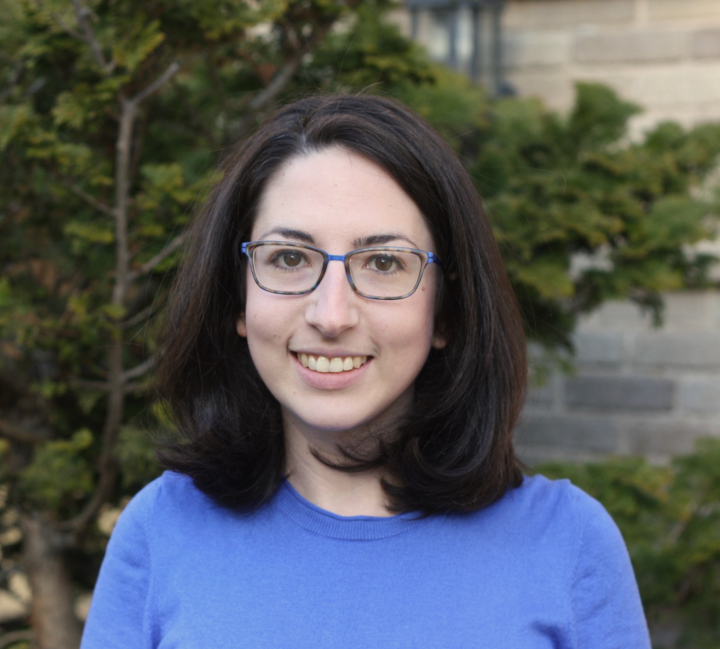Rachel Rudinger Receives NSF CAREER Award
Rachel Rudinger, an assistant professor of computer science at the University of Maryland, has received a National Science Foundation (NSF) Faculty Early Career Development Program (CAREER) award to further her work on “Robust, Fair, and Culturally Aware Commonsense Reasoning in Natural Language.” Her research focuses on developing models for knowledge acquisition and commonsense reasoning.
Rudinger is the principal investigator of the award, which is expected to total just under $600,000 over the next five years.
“I’ve always had a deep admiration for the National Science Foundation and its mission, so I am simultaneously thrilled and humbled that they’ve chosen to support my research vision,” Rudinger said. “I am fortunate to work with a group of outstanding Ph.D. students here at UMD, and it is gratifying to be able to support them through an award that could not have materialized without their hard work.”
The NSF CAREER award, known for its highly competitive nature, supports early-career faculty who have the potential to serve as academic role models in research and education.
With large language models (LLMs) like OpenAI's ChatGPT gaining popularity and finding applications in high-stakes areas like education and mental health, their limitations have also become more evident. Despite their impressive capabilities, LLMs often falter in "common sense," revealing gaps in their reasoning about everyday scenarios.
Rudinger's research aims to address these issues by focusing on enhancing the robustness, fairness and cultural adaptability of common-sense reasoning in LLMs.
"These problems in LLMs are real but difficult to measure, so a major objective for us is to advance the science of LLM evaluation in these areas," Rudinger shared. "My long-term vision is to work towards language technologies equipped with nuanced and unprejudiced reasoning skills that can adapt to meet the needs of a wider set of users across cultures."
The award will also support Rudinger's other goals, including developing a new curriculum and teaching materials that integrate her research findings into classroom instruction. This initiative is designed to nurture the next generation of scientists and engineers, equipping them with the knowledge to tackle complex problems in artificial intelligence.
Rudinger has appointments at the Computational Linguistics and Information Processing (CLIP) Lab and the University of Maryland Institute for Advanced Computer Studies (UMIACS). Before joining UMD, she was a Young Investigator at the Allen Institute for AI (AI2) and a visiting postdoc at the University of Washington.
Rudinger received her Ph.D. in computer science from Johns Hopkins University in 2019 and her B.S. in computer science from Yale University in 2013.
—Story by Samuel Malede Zewdu, CS Communications
###
“Robust, Fair, and Culturally Aware Commonsense Reasoning in Natural Language” is supported by NSF grant #2339746 from NSF’s Division of Information and Intelligent Systems.
The Department welcomes comments, suggestions and corrections. Send email to editor [-at-] cs [dot] umd [dot] edu.
